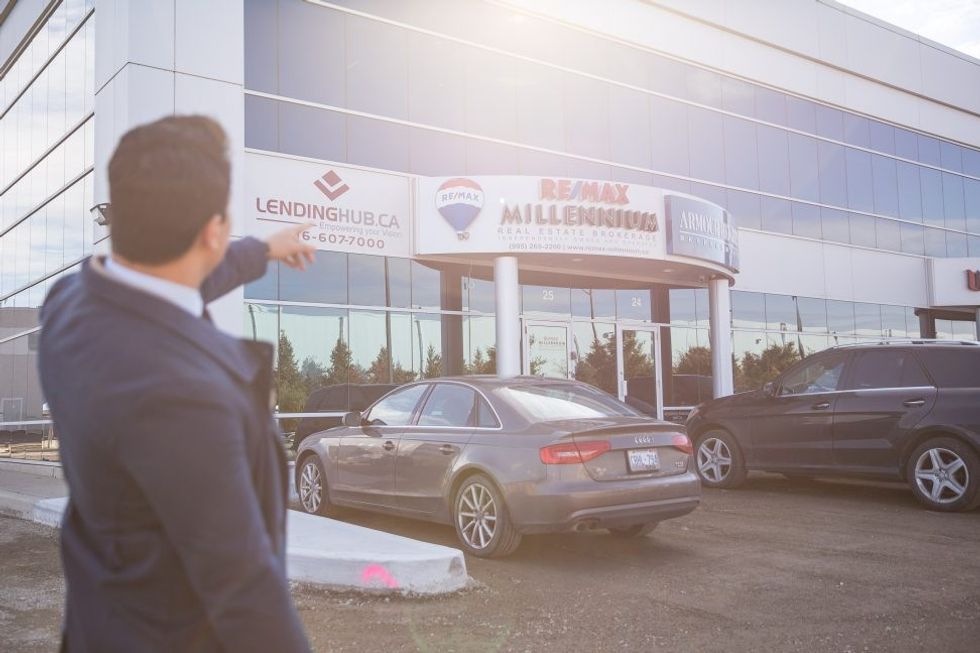Ron Sally wasn't happy when he first started working in real estate. Young and eager to learn, he quickly realized he wasn't cut out for working at a traditional brokerage. So, at 25, he started his own. This is his story.
The Realization
When I first got into real estate, it was all about learning and running after different kinds of deals.
What I realized—down the road—was that brokerages just give you the generic, cookie-cutter training. I was looking for more education, more training. I wanted to know what the latest trends were. I wanted to know what the latest market stats were. I wanted to know the latest ways of marketing, what technology I could use to facilitate my listings and appointments. I wanted to know how I could make my presentation skills better.
READ: Changing Brokerages: How Real Estate Professionals Decide Whether To Stay Or Go
I wanted to know how all these little details would make me a successful agent then I realized brokerages don't work like that.
So, I started my own brokerage. I figured if others can't provide me with the platform I'm looking for, then I'm going to start something on my own and those who are aligned with the way I do things can be part of my brokerage.
Becoming A Broker/Owner At 25
Age was never a factor for me. I got my mortgage license when I was 19 years of age. In terms of maturity, I think I was always mature. Even when I was younger, I knew I wanted to do something.
RE/MAX was my number one choice because they are number one. When I went out on my own I said I don't want any other brand than RE/MAX. So, they put me through a series of tests to make sure I was capable of handling something like this and, that I had a background—something to offer.
READ: Dorian Rodrigues Uses His Youth (And Internet Savvy) To Sell Houses
They made me create a big business plan. I got an accountant and a lawyer. I got everybody and made sure I took everyone's advice when putting together my business plan.
When RE/MAX saw it they said, “No one has ever submitted this kind of business plan in their time of getting a franchise. It's so detailed and so broken down.”
I listed how many agents I wanted in the first year and how many in the second year. I put down how much money I was going to make and my profit/loss ratio. They were so taken aback because they'd never seen anybody prepare something like that.
Finding A Specialty
Specialization is more important now than ever before. You can't be an agent who is just doing sales all over the GTA, you really should focus on a pocket. Whether it's a city you want to work in, like Vaughan, Mississauga or Toronto.
I turn down clients all the time because I say, “Look, even though you want to work with me, I can't work in that pocket because I don't know what's going on. I can only refer you to someone else.”
There's no fun in shooting blank bullets. You never enjoy it because you're running in four to five different directions. To really specialize in a field, you have to be known for something. You can do different aspects of real estate, but it all comes back to what you are known for.
READ: Dominic Mortezadeh Traded Life On The Stage For Real Estate Fame
I think finding a specialty happens over time. The more you do one thing the more you're like, “You know what? This is my specialty."
That's how I fell into pre-construction—if you want to put it that way. After my first development, I thought, I like this. I like that I can make double-digit sales in one single development. I can't do that with a home.
Providing Value
It starts with the inner experience. As a broker, if I can't provide service and value to my clients then I need to improve my service. To be a great agent your service has to be top-notch level. Some of the best learning experiences, you will ever get is from an unhappy client.
One mistake I made was after a sale. I didn't follow up or stay in touch with the client. You close the deal and bam—you've vanished and you never show your face again. But guess what happened? The client bought and sold another house with another agent. I called him and asked why he didn't come to me and they said, “Because you didn't reach out to us in the last year. We never heard from you. We didn't know if you were still in the business.”
What I realized was that was a bad experience for my client. Now if I make a sale I ensure I'm always at the top of that client's mind.
If I can make a client money and they actually made money, they're a happy camper. That's my way of looking at it. I've provided full-service value and at the end of the day, the client shouldn't stress about anything—that's the agent's job.























